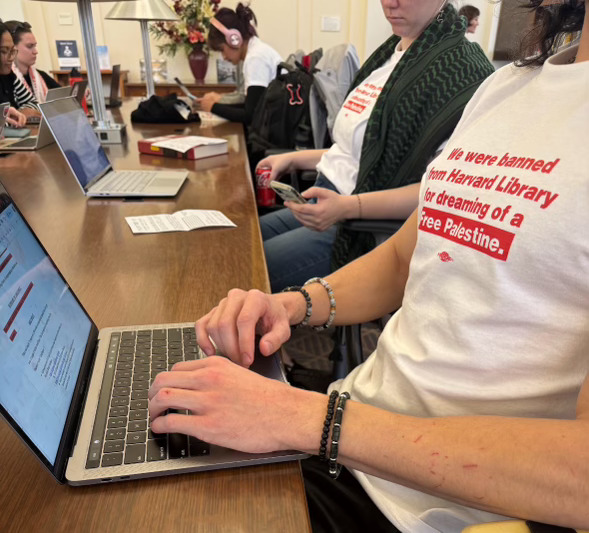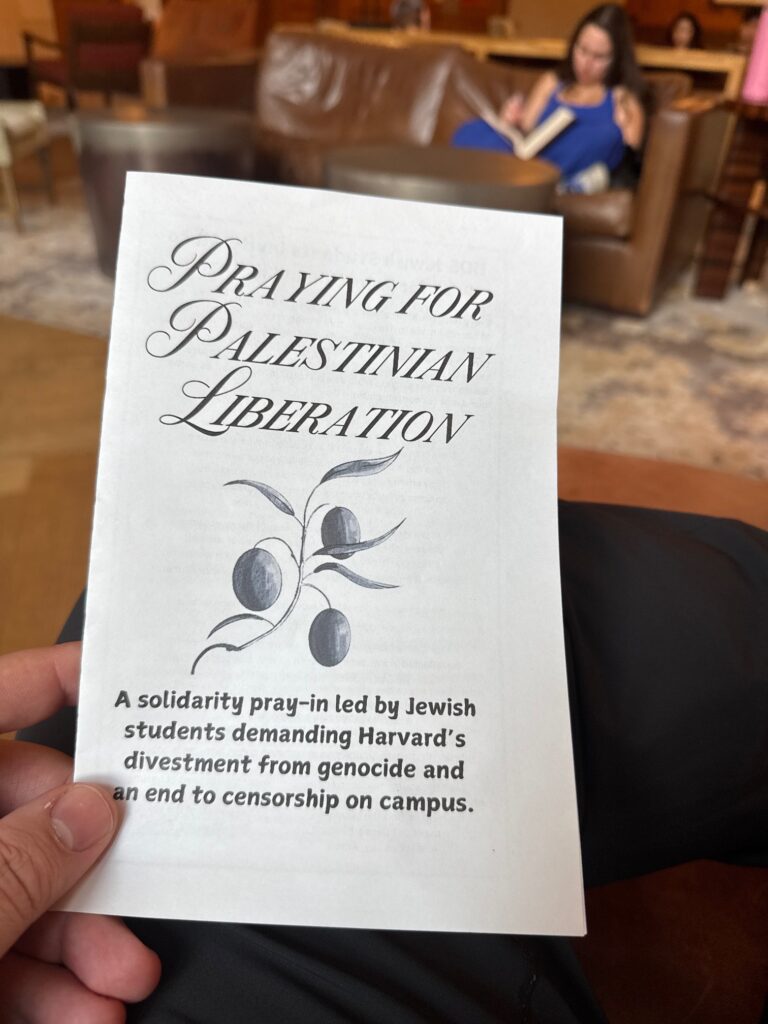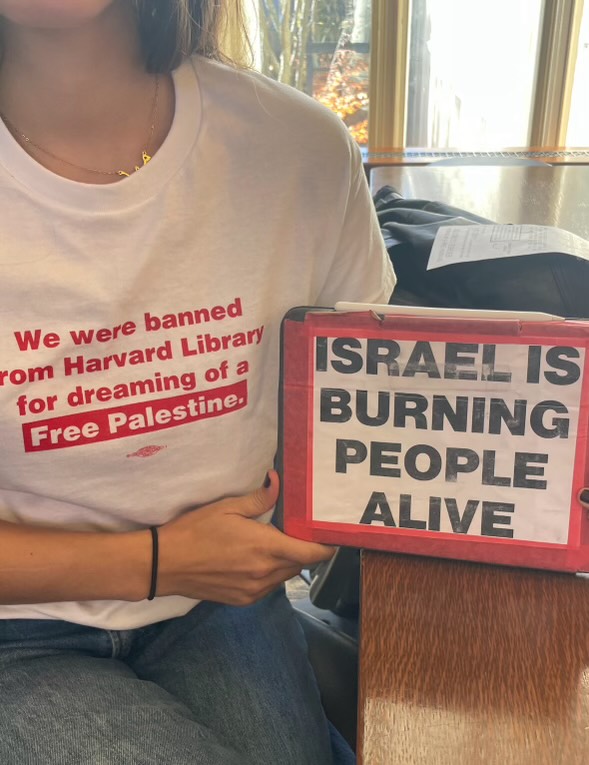
Over the past year, Harvard Law School’s Student Government (HLS SG) has faced the unenviable task of responding to student discontent surrounding Israel’s alleged genocide in the Levant, and Harvard’s ongoing investment in entities connected to the Israeli government. After passing a contentious divestment resolution in the Spring, and another pair of resolutions condemning the new use of space policy and the series of sanctions levied on participants in silent protests this fall, the HLS SG has passed another resolution attempting to address the unrest.
In a special session on Saturday, November 16, HLS SG passed R.-208-003 by a vote of 15 Yes, 1 No, and 2 Abstain. The resolution approved student-wide referendum on December 4. The referendum asks whether the HLS student populace condemns the disciplinary action taken against students for silent protests in the library and calls for these punishments “to be removed from any disciplinary record held by the University.”
This is yet another chapter in the fallout at institutions of higher education since the October 7th attacks by Hamas, which have been described as “atrocious by Amnesty International. The totality of Israel’s actions in Gaza since that day have been described as “consistent with the characteristics of genocide” by a UN special committee established to investigate the matter.

Heated discourse about the culpability of parties involved in the conflict and the involvement of social and corporate entities with the Israeli government, in light of plausible allegations of its carrying out a genocide, have led to a multitude of controversies across US college campuses over the last year.
This sudden attention, often motivated by misinformation about university personnel, has often jeopardized student safety and is largely to blame for the resignation of Harvard President Claudine Gay earlier this year. The resulting tensions culminated in the dramatic encampment in support of Palestine at Harvard, along with encampments at many other universities in Boston and across the United States.
In response to the tumult of the previous school year, Harvard University unveiled newly restrictive policies regarding the use of common spaces around campus, prompting significant criticism from students and student organizations. Pro-Palestine student organizers have attempted to delicately navigate the policies enshrined by the school to keep attention on the conflict in Gaza and its expansion into Lebanon.
Throughout this semester, several students have hosted silent protests in various libraries at the university. At these events, students have studied, prayed, or read books while displaying condemnation of Israel’s alleged genocide. Under the apparent authority of the new policy, a plethora of students have faced temporary bans from libraries as punishment for wearing communications denouncing university policy or adorning their reading materials with messages about the ongoing atrocities in Gaza and Lebanon. In addition to bans, some participants have been referred to the Harvard administrative board for possible discipline (the “AdBoard” retains discretion to levy punishments ranging from reprimands up to expulsion).
The passage of the recent referendum is meant to capture student opinion regarding this recent application of the use of space policy against pro-Palestine student activists. However, in order to notify the student body of the coming referendum via the student-wide email list, the Student Government must obtain the approval of the Dean of Students (DoS).

SG Co-Presidents John Fossum, HLS ‘25, and Deborah Alexis, HLS ‘25, began a correspondence with Dean Stephen Ball, J.D. ‘10, on Monday, November 18 regarding email publication of the referendum. Following a zoom meeting with the co-presidents, Dean Ball agreed to distribute the referendum via a qualtrics survey, but declined to commit to advance notice via email informing students of the resolution condemning Harvard’s discipline of students or the resolution approving the referendum. In particular he took issue with the description of the sanctions imposed by Harvard administrators following silent protests, suggesting that the referendum was misguided because he claims that students had no disciplinary record and were not “disciplined” under university policy.
Since the November 18 meeting, Co-Presidents Fossum and Alexis have exchanged emails with Dean Ball, without commitment to a particular method of notifying the students.
With the Thanksgiving holiday break approaching, the next available weekday for an announcement is December 2, a mere 2 days before the referendum. Since the plebiscite serves as a reflection of student opinion regarding their policies, DoS is undoubtedly a party interested in its outcome. Dean Ball’s potential obstruction of the process by vetoing SG’s communication of the question at issue raises concerns about democratic process.
Mia Stone-Molloy, HLS ‘27, a Jewish 1L SG representative, decried HLS’ administration for “doing everything in its power” to obstruct “even the most officially sanctioned forms of student expression.”
Holden Hopkins, HLS ‘25, a Jewish 3L SG representative, described participation in the silent protests as “a moral imperative” given “Harvard’s complicity in funding Israeli genocide and violations of international law.” He was temporarily banned from the Harvard Divinity School library for reading the Mourner’s Kaddish, a traditional Hebrew prayer, from a prayer book that prominently displayed the words “praying for a free Palestine.”
On the library bans and discipline, Stone-Molloy noted, “if [students] can’t express our opinions non-disruptively in a space we pay tuition to be in, where can we?”
As of 2:00 PM today, Dean Ball has made no commitment to any decision on proper distribution of information regarding the December 4 referendum on the application of university policies.
The Harvard Law Communications Office could not be reached for comment.

